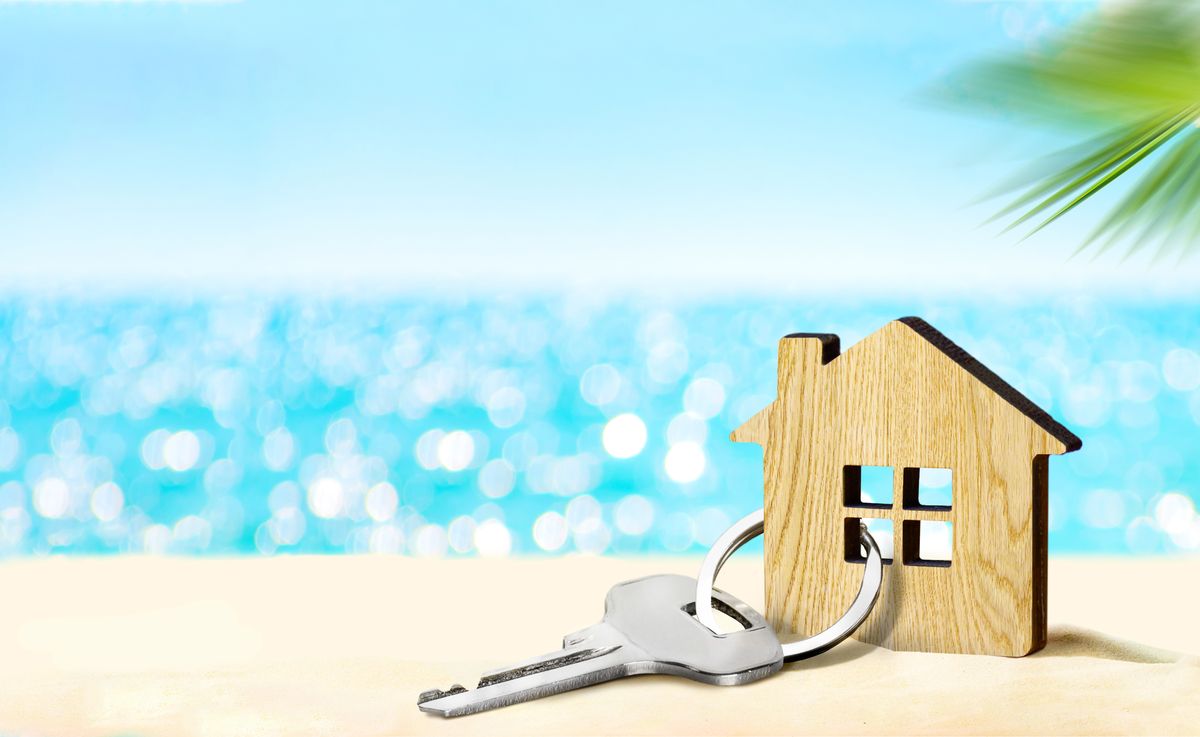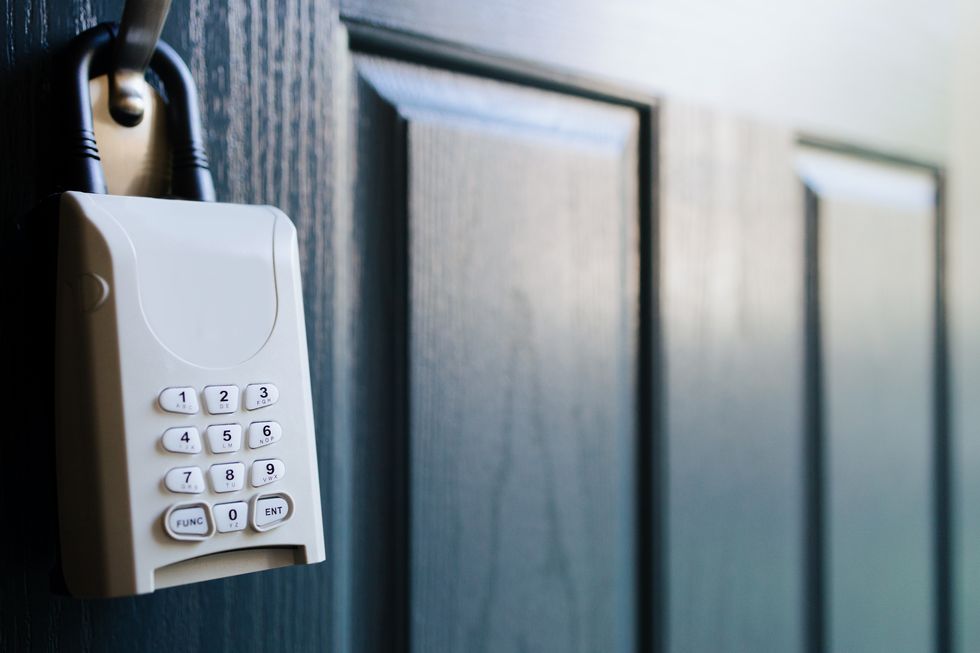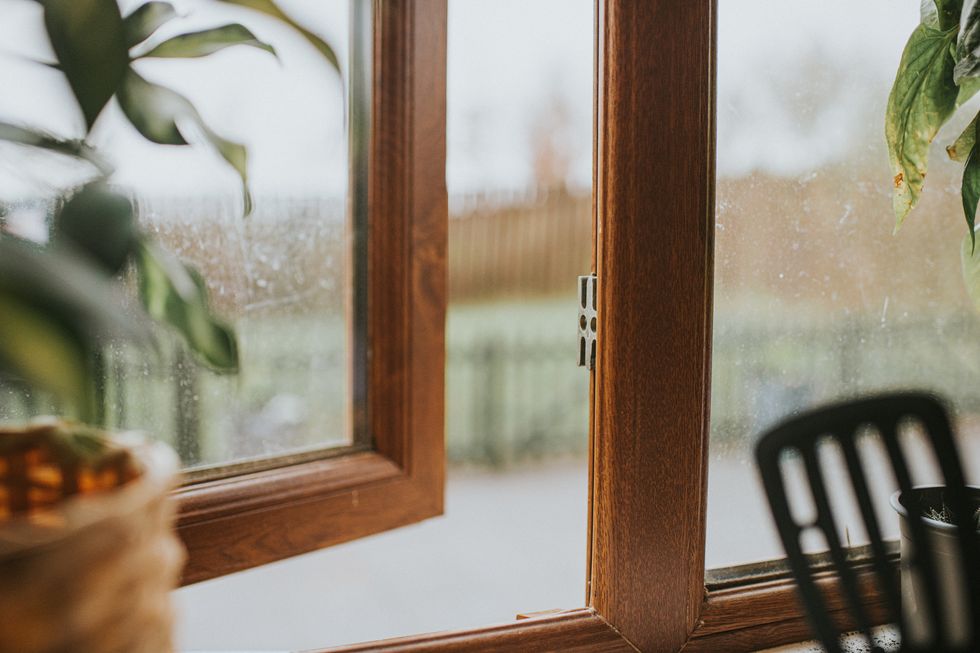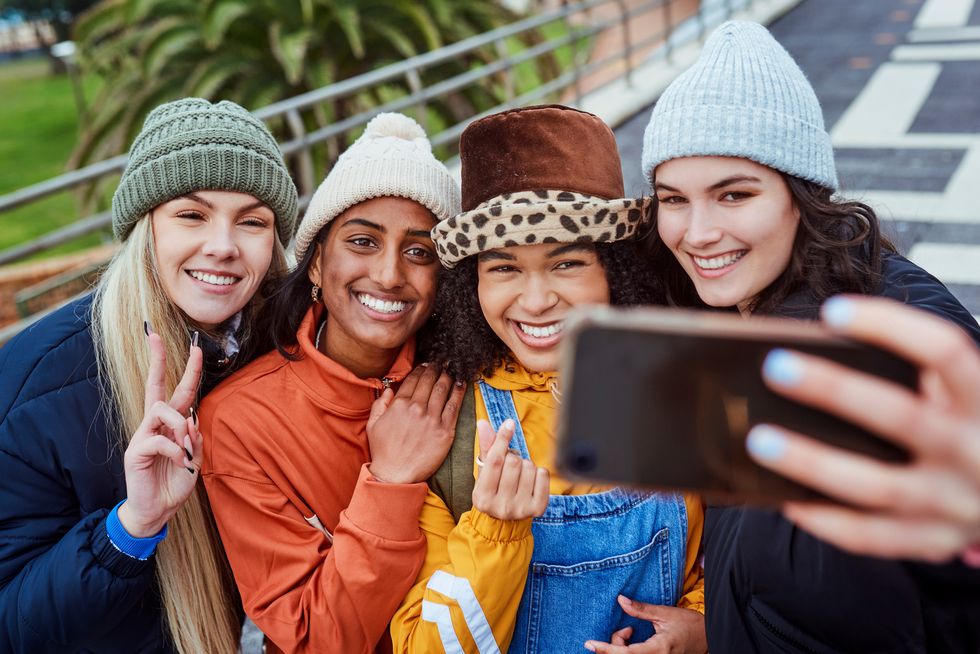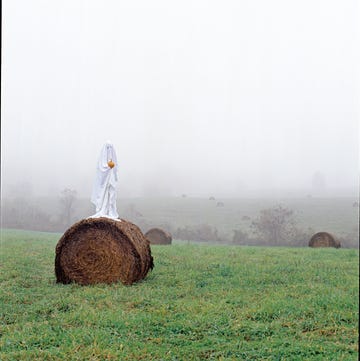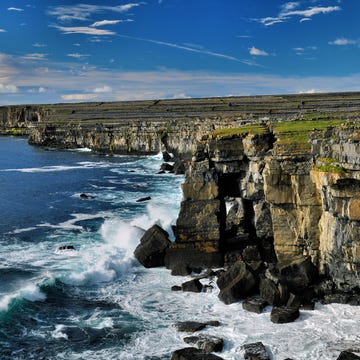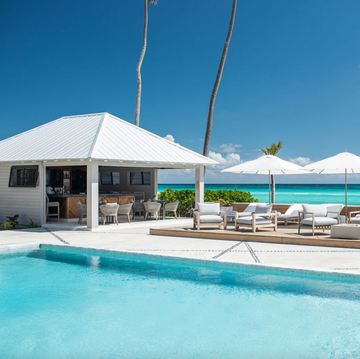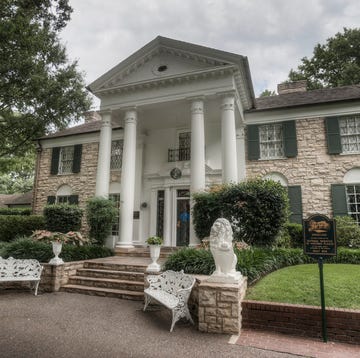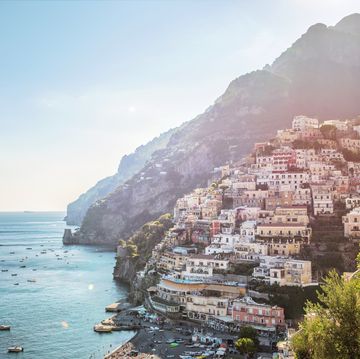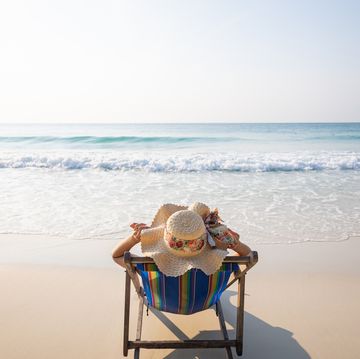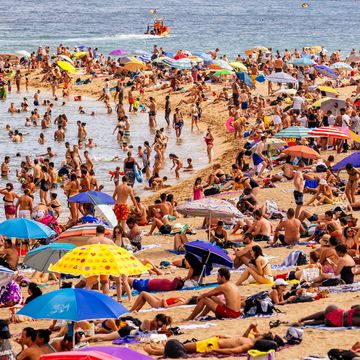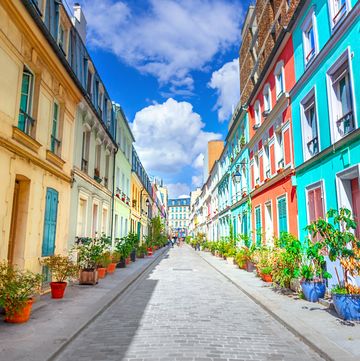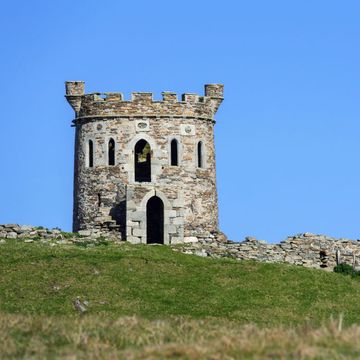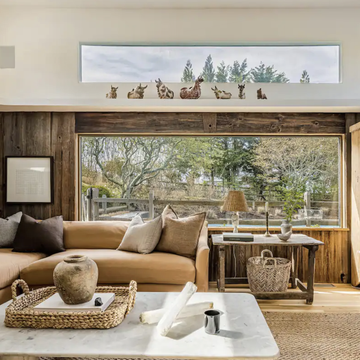While vacations should be all about relaxation and fun, you still have to be mindful of your safety wherever you are in the world. And if you're renting a vacation home, whether through Airbnb or another platform, you should be mindful of safety there, too.
For starters, you should always begin your vacation with a quick sweep of the property after. "Check the functionality of safety features like smoke detectors, carbon monoxide detectors, fire extinguishers, and emergency exits. Familiarize yourself with their locations and operations," says Erik Glassen, senior manager of brand marketing for lock manufacturer Kwikset.
But you also need to consider thwarting potential break-ins. "The chances of being burgled are relatively low, but there are precautions you can take to amp up the security in a vacation rental," says Justin Ford, director of vacation rental safety and certification programs at Breezeway, a short-term rental management platform.
More From House Beautiful
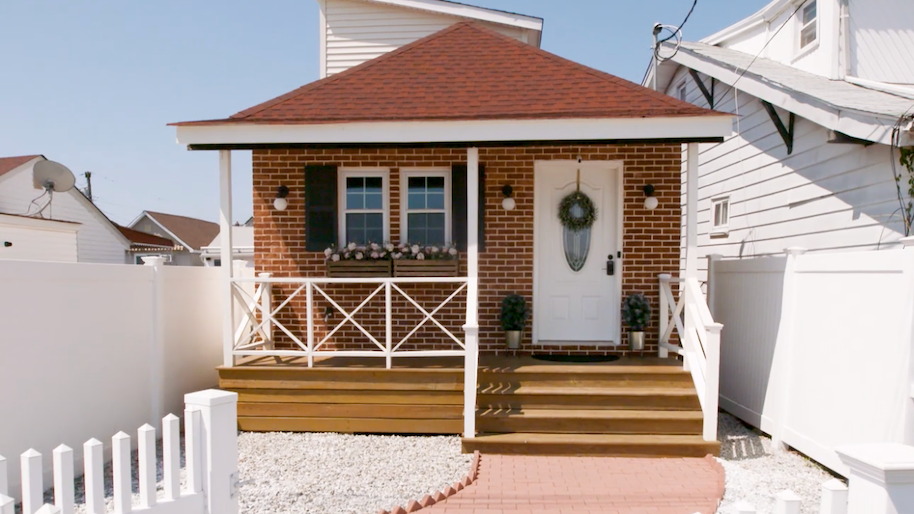
Here are seven things that could lead to burglaries in your vacation rental—and how to prevent them.
The lock code hasn't been changed.
Many vacation rentals offer self-check-in, which usually means there's a keyless lock or a lockbox on the door. Property managers should always change this code between guests, but that's not always the case—and that means someone might have easy access to the house. Luckily, staying safe can be as simple as asking a question. "If there is an electronic lock that accesses the rental, ask the host who else has the code and confirm that they change the code for each rental. If a key is used, find out who else has access to the keys," says Ford.
The windows and doors don't lock.
Check all windows and doors to ensure they lock properly, as an open window or door is practically an invitation for burglars. "You can bring your own locks to attach to windows and doors to add an extra level of security to your rental," says Tim Reneimo, co-founder of Security Guards Only, an online community for security professionals. For example, this portable door lock, which can also be used in hotel rooms, costs only $18.
Then, any time you leave the property, lock up! "Ensure that all doors and windows are securely locked whenever you leave the rental property, even if it's just for a short period," advises Glassen.
There are no outside lights.
"Exterior lighting plays a huge part in the exterior security of the property," says Ford. "Motion-detection lights that come on to movement around the perimeter of the property can help detect and prevent burglars. Dark spaces that lead up to the rental dwelling are essentially a path for unauthorized access by any burglar." While it's a little difficult to travel with your own motion-detection lights, you can certainly ask a property manager about the outdoor lighting situation before you book the rental. And bring a flashlight for extra peace of mind.
The home looks unoccupied.
Most burglaries happen when no one's home, so it's prudent to always leave the TV on or music playing. Yes, Kevin McCallister from Home Alone had it right! "To prevent theft in the rental while you are away from it, do your best to make it look like someone is still there when you are out. Leave some lights or the TV on, and keep a car in the driveway if possible," says Ford.
The property is in a high-crime area.
If burglaries are common in your rental's area, that means your vacation home is likely at a higher risk of being burglarized. "Do a Google search of the property address once you know it. Check under 'news' results and see if there are any reports of break-ins or other incidents in the neighborhood," says Ford.
You discover hidden cameras in the home.
Cameras are technically allowed in vacation rentals so long as they're disclosed to guests—but not in private areas like bedrooms and bathrooms. But you may end up finding hidden cameras, whether they're installed by former guests or the property manager. That, of course, is a major invasion of privacy and should be reported immediately. But it can also alert burglars as to when the home is unoccupied.
"There are many different areas where hidden cameras can be installed: two-way mirrors, smoke detectors, lamps, picture frames, USB drives, vents, alarm clocks, and shower heads," says Bill Herzog, president of LionHeart Security Services. In order to find those hidden cameras, he advises turning off all the lights, then looking for faint lights in those places, as most "hidden cameras have red or green LED lights to create just enough light for the camera to capture the images." Herzog also suggests employing the camera on your phone to investigate a space, as most phone cameras can detect infrared light. "Use the front-facing camera and hold it to any devices that look out of place or areas that are common for hidden cameras to detect any infrared lights," he says. "These lights often blink, so hold the camera up to it for a short period to make sure there is no light emitting from the device."
You've posted your location in real-time.
"Don't post your exact whereabouts on public social media. Unfortunately, many scammers find their victims through tourist attractions or even working at the rental property you are staying at," says Reneimo. "Therefore, they can easily access your name and find you on social media, where they can see your whereabouts if you update it frequently. Avoid posting in real-time when you are away from the accommodation, as they will see this as an opportunity to target you."

Stefanie Waldek is a Brooklyn-based writer covering architecture, design, and travel. She's worked on staff at Architectural Digest, ARTnews, and Oyster.com, a TripAdvisor company, and has contributed to Condé Nast Traveler, The Washington Post, Design Milk, and Hunker, among others. When she's not dreaming about midcentury chairs, you can find her re-watching The X-Files, likely in an airport lounge or on a plane.
